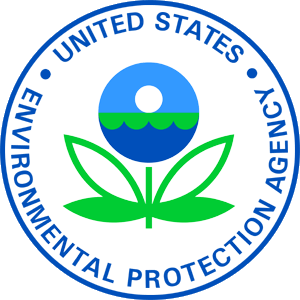EPA Training Grants Create Job Opportunities Across the Country
EPA selects 19 communities for grants to train unemployed individuals to enter the environmental field, strengthen local economies
WASHINGTON – The U.S. Environmental Protection Agency (EPA) announced today the selection of 19 communities in 17 states and territories for approximately $3.6 million in Environmental Workforce Development and Job Training (EWDJT) grants. Each grantee will receive up to $192,300 to operate environmental training programs to clean up Brownfields sites in economically distressed communities.
“EPA’s job training program advances economic development by creating job opportunities for workers to serve in their own communities,” said Mathy Stanislaus, assistant administrator of EPA’s Office of Solid Waste and Emergency Response. “Many graduates—including ex-offenders and veterans– secure meaningful employment that protects the environment and promotes economic development in some of our neediest communities.”
On Friday, May 22, Assistant Administrator Stanislaus announced one of the EWDJT grants to St. Louis Community College to highlight the cross disciplinary environmental training EPA supports under the program. With the grant funding, St. Louis Community College plans to train 69 unemployed and underemployed individuals, and place 55 of those in full-time employment in the environmental field. Each student will receive 240 hours of core training in hazardous waste remediation; lead and asbestos abatement worker; mold remediation; lead renovator, repair, and painting; underground storage tank removal; stormwater management; and other advanced safety and ecosystem restoration coursework.
The EWDJT program provides communities the flexibility to deliver training that meets the varying local labor market demands of the environmental sector in their communities. Graduates develop a broader set of skills that improves their ability to secure, not just short term contractual work, but full-time, sustainable employment in the environmental field. As a result of this funding, unemployed and under-employed individuals acquire training and certifications in a variety of environmental skills, such as: lead and asbestos abatement, Hazardous Waste Operations and Emergency Response, environmental health and safety, wastewater treatment, stormwater management, brownfields assessment and cleanup, electronics recycling, Superfund site-specific cleanup, Freon removal, emergency response, oil spill cleanup, native plant re-vegetation, and integrated pest management. As a result of this training, some graduates of the EWDJT program secured employment in activities related to the response and cleanup of the World Trade Centers in New York following the attacks of September 11, Hurricanes Katrina, Rita, and Sandy, as well as the BP Oil Spill. Since the program’s inception in 1998, EPA has funded 256 job training grants exceeding $54 million. More than 13,900 individuals have completed training, and of those, more than 10,000 have secured employment in the environmental field with an average hourly starting wage of $14.18. This equates to a cumulative job placement rate of 72 percent.
The EWDJT program was developed in the 1990s, as a result of recommendations raised by environmental justice leaders suggesting that the EPA support environmental training to help benefit local residents, and from an EPA realization that often times local residents were not benefitting from local remediation and cleanup activities due to the lack of a locally trained workforce in their communities. Rather than filling local, environmental jobs with professionals from distant cities, these grants help to provide an opportunity for local, unemployed residents to secure careers that make a visible impact cleaning up their communities. Graduates of the program obtain employment within their communities, areas which may be affected by blight, economic disinvestment, and solid and hazardous waste sites.
These grants support training programs that recruit, train, and place unemployed and under-employed residents of waste-affected communities with the skills and certifications needed to secure employment in the environmental field. Projects are funded based on the comprehensiveness of the training curriculum, the likelihood that graduates will obtain employment, strong public-private partnerships, and diverse community-based organization and employer involvement.
EWDJT grants are awarded to a broad range of communities with multiple indicators of need, including communities affected by the closure of manufacturing facilities, communities affected by natural disasters, communities designated as Housing and Urban Development “Promise Zone Communities,” (http://www.hud.gov/promisezones) Economic Development Administration “Investing in Manufacturing Communities Partnership” designated communities (http://www.eda.gov/challenges/imcp), and HUD/Department of Transportation/EPA “Partnership for Sustainable Communities” (http://www.sustainablecommunities.gov) designated communities. The program also serves unemployed, dislocated workers who have lost their jobs as a result of manufacturing plant closures. By gaining training through the EWDJT program, these individuals have re-entered the workforce, and many have secured employment working at other manufacturing facilities throughout the U.S. Some graduates have also participated in the cleanup and remediation of former manufacturing and auto plants, such as the cleanup of the “Chevy in the Hole” site in Flint, Mich.
(http://www.epa.gov/region5/cleanup/chevyinthehole/index.html).
Grantees announced to receive funding today, include:
> Zender Environmental Health and Research Group (Anchorage) Alaska
> Fresno Area Workforce Investment Board, Calif.
> City of Richmond, Calif.
> Denver Indian Center, Inc., Colo.
> West End Neighborhood House (Dover) Del.
> Florida State College at Jacksonville, Fla.
> OAI, Inc. (Chicago) Ill.
> Merrimack Valley Workforce Investment Board (Lawrence) Mass.
> St. Louis Community College, Mo.
> CLIMB Community Development Corporation (Biloxi) Miss.
> The Fortune Society, Inc. (Long Island City) N.Y.
> Rose State College (Midwest City) Okla.
> Oregon Tradeswomen (Portland) Ore.
> PathStone Corporation, P.R.
> Tarrant County College District, Texas
> Great Lakes Community Conservation Corps (Racine) Wisc.
> Milwaukee Area Workforce Investment Board, Wisc.
> Coalfield Development Corporation (Wayne County) W.Va.
> Groundwork Providence, R.I.
For more information on brownfields grants, including EWDJT grants, by state, please visit:
http://cfpub.epa.gov/bf_factsheets/index.cfm
For more information on EPA’s brownfields program, please visit: http://www.epa.gov/brownfields
NOTE: This press release was submitted to Urban Milwaukee and was not written by an Urban Milwaukee writer. While it is believed to be reliable, Urban Milwaukee does not guarantee its accuracy or completeness.
Mentioned in This Press Release
Recent Press Releases by U.S. Environmental Protection Agency
EPA Releases Draft Health-Based Recommendations for PFAS Levels in Bodies of Water
Dec 19th, 2024 by U.S. Environmental Protection AgencyCriteria can be used to inform water quality standards to protect people from exposure to PFAS
Crane Company Manitowoc to Pay $42.6M for Clean Air Act Violations for Sale of Noncompliant Diesel Engines in Heavy Duty Cranes
Dec 19th, 2024 by U.S. Environmental Protection AgencySettlement requires company to retrofit a short-line locomotive engine to improve air quality along 70-mile-long pathway in the Sparrows Point area of Maryland





















